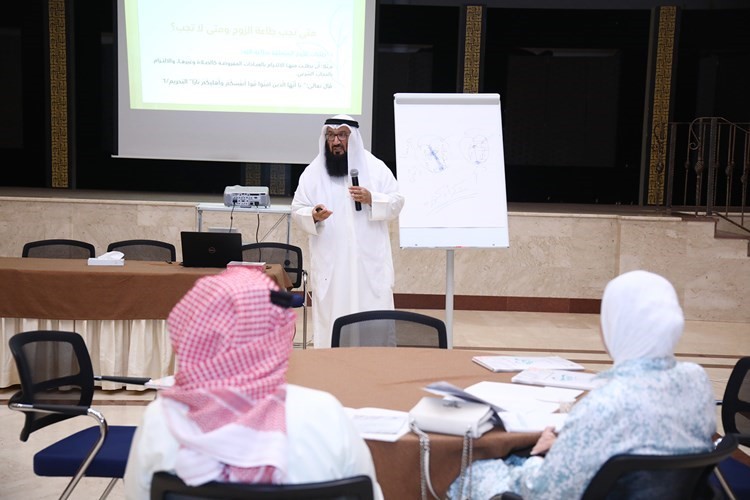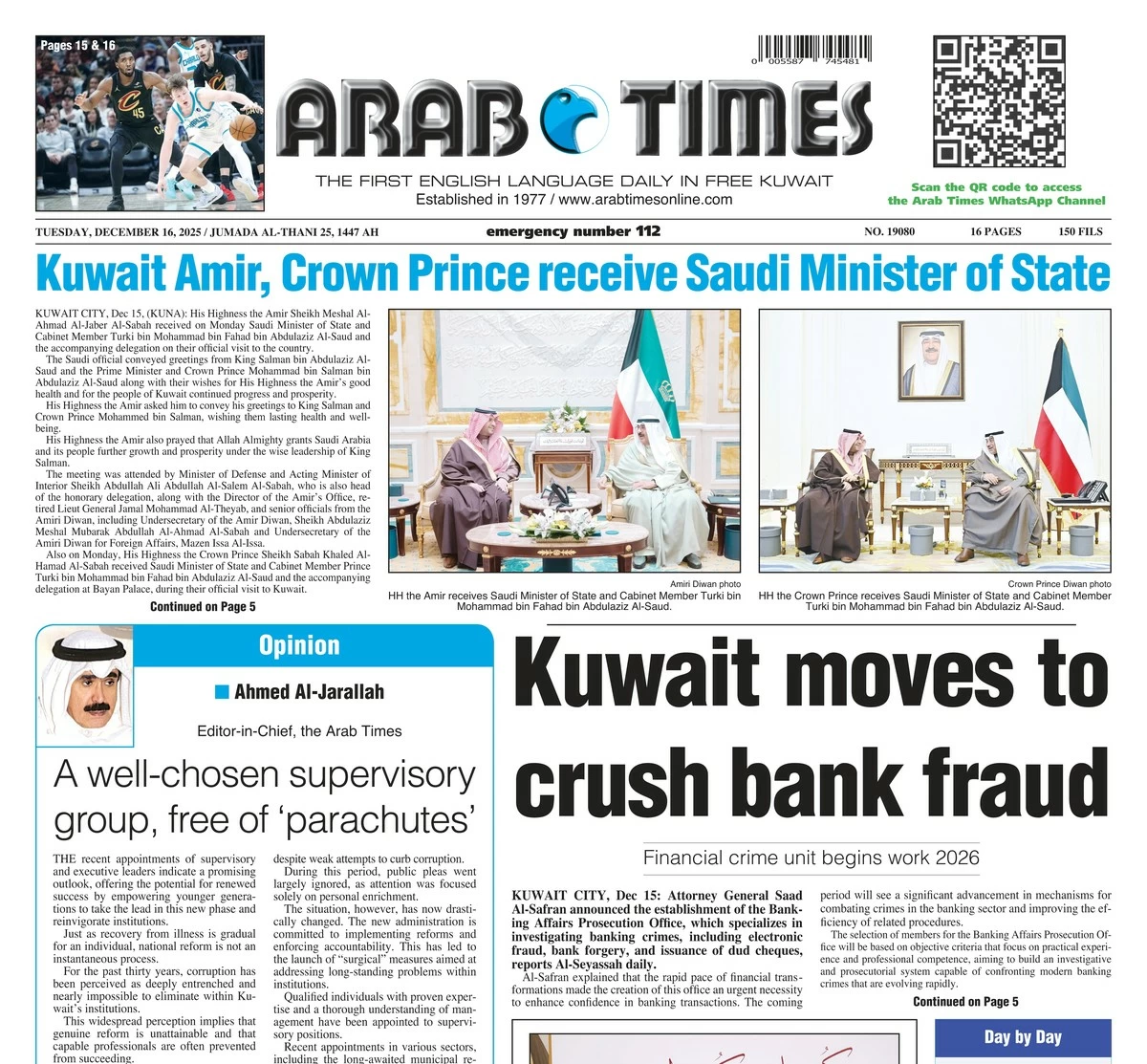29/10/2023
29/10/2023

KUWAIT CITY, Oct 29, (Agencies): Kuwait is actively working on several fronts to safeguard family integrity and reduce divorce rates, recognizing the family as a fundamental cornerstone of society's coherence, advancement, and progress.
As part of these efforts, the Ministry of Justice has initiated an educational program for soon-to-be-married couples called "Wafaq." This program operates under the supervision of Dr. Fahd Al-Da'an, the Assistant Undersecretary for Family Affairs and Arbitration. It is executed in collaboration with the Directorate of Family Counseling and the General Secretariat of Awqaf. The Ministry of Justice recently conducted a new training course that was attended by numerous newlyweds and those in the process of getting married. The course's primary objective is to equip participants with the necessary legal, psychological, and social knowledge required for building a robust and enduring marital life.
This initiative, known as "Wafaq," aims to educate young individuals, preparing them for the institution of marriage, which is of paramount importance to society. Through this program, they gain an understanding of the essence of marriage, its objectives, the dynamics of family life, and effective strategies for sustaining it as the bedrock of society.
The program goes beyond the theoretical and delves into the practical aspects of marriage, addressing the legal, social, and psychological dimensions. Conducted over a two-day period, "Wafaq" has organized 11 training courses so far, commencing with the first on June 12 and 13. These courses have drawn the participation of 289 individuals who are either newlyweds or planning to enter into matrimony. The sessions take place in the evenings at the headquarters of the General Secretariat of Awqaf.
During the courses, Dr. Bassam Al-Shatti leads discussions covering a range of topics, including the respective rights and responsibilities of spouses. He places considerable emphasis on the equitable distribution of responsibilities and tasks between partners while guiding them on how to navigate challenges encountered during married life.
The idea of "Wafaq" emerged after a meticulous study of divorce cases, recognizing the pressing need for couples to be well-informed about their rights and duties toward each other. It's noteworthy that Kuwait's courses are unique, offering a condensed format with fewer hours but an intensive focus on crucial information.
The positive impact of this program is demonstrated in the significant reduction of divorce rates across Gulf societies, a remarkable achievement estimated at approximately 25%. This underscores the essential role of awareness for couples.
Furthermore, Iman Al-Saleh, Director of the Directorate of Family Counseling, stresses that "Wafaq" is a free program accessible to the public. Participants in the "Wafaq" courses receive an accredited certificate from the Ministry of Justice upon completion.
In addition to course participants, 150 students from the College of Social Sciences have attended segments of these courses, further highlighting Kuwait's dedication to strengthening family bonds and equipping couples with the tools necessary for marital success. This commitment to fostering strong and stable family units underscores the government's unwavering dedication to building a healthier society.


